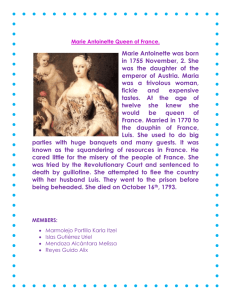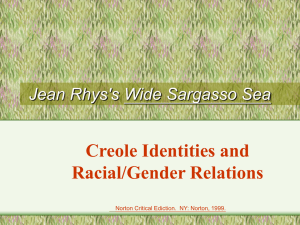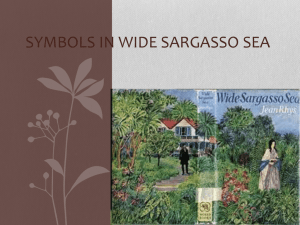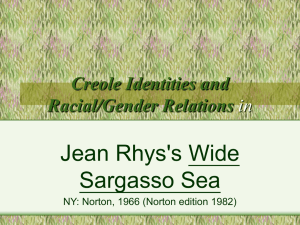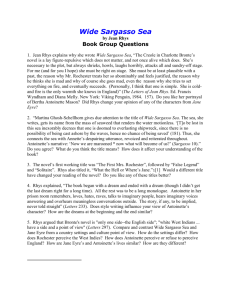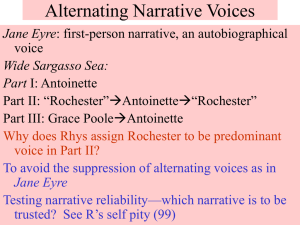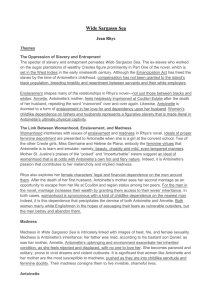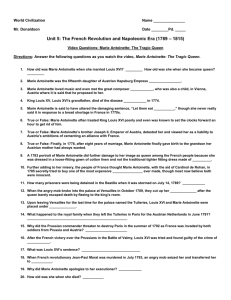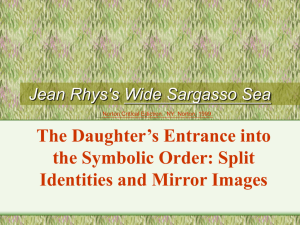Wide Sargasso Sea-isolation - Mrs
advertisement
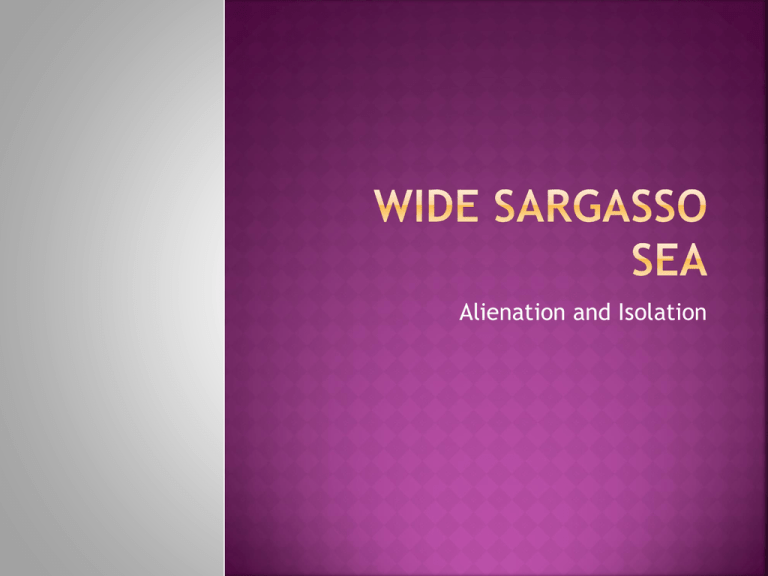
Alienation and Isolation ‘They say when trouble come close ranks, and so the white people did. But we were not in their ranks.” (Opening line.) She does not fit into her community or her family. She has been kept from the land she grew up on and understands. Her husband is an ‘alien’ whom she finds it difficult to understand. Ultimately the motivation behind the Cosway’s isolation is racially based. As the opening line reveals, the family was excluded because they were not white or at least the right type of white. BUT they are also not black and the ex-slaves of Jamaica despise all whites- although even they know the difference between the English and the Creoles. They also understand class/social structures: “Old time white people nothing but white nigger now, and black nigger better than white nigger.” For Antoinette this has huge implications- her family is not the right white and does not have the money or poor to inspire respect in the black community. Not even friendship can transcend these boundaries. As trouble erupts Tia turns her back on Antoinette. The parent-child relationship. Annette rejects Antoinette on multiple occasions preferring to shower her younger child, Pierre with care and affection. Ultimately Antoinette accepts her mother’s rejection and becomes ‘wild’. The marriage between this couple seems a strange one- it is obviously arranged as neither party has had any say in the matter. Both Antoinette and Rochester seem to be their parents’ cast-away child traded by their parent/brother. They begin their marriage as strangers. Information is deliberately withheld. They lack any understanding of one another. They come from completely different worlds. Betrayal as a means of escape? Antoinette is connected to the land- it is something she understands. To Rochester the land is too much. He associates the land with his illness, irrationality and the trap he has fallen victim to.- Rochester is an alien here. To Antoinette England is a foreign concept which she cannot picture. For the transformation from Antoinette to Bertha to be complete Antoinette must ultimately loose her identity: She must rely upon first her step-brother and then Rochester for money. She is renamed ‘Bertha’. Her rooms are stripped of mirrors so that she cannot reassure herself visually of who she is. Antoinette’s loss of identity leads to her madness. Ultimately where does this leave Antoinette? So - Burning down Thornfield Hall and taking her own life. what is Rhys’ message? - We need each other. Jean Rhys wrote other stories… BUT… many were about this character- the name and only minor details change (although each is about a different stage of her life). Each is about a drifting, unhappy, unstable woman. Wide Sargasso Sea is the final account and is said to be the most successful- some say it is her only real novel as the others were far less successful and seem to be drafts of this character. What is so fascinating about this character?
